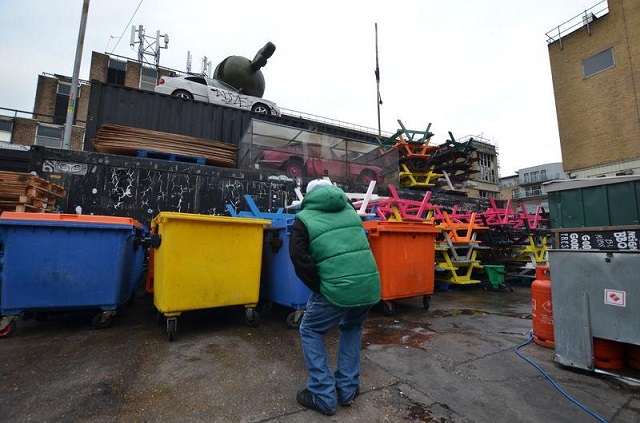
"Initially I went squatting," he told the Thomson Reuters Foundation, sipping a cup of tea at a cafe in east London's eclectic Brick Lane, where he has been living as a homeless man for almost a decade. Now in his 40s, he plans to rent a place of his own soon, after two years working as a guide for Unseen Tours - a social enterprise that employs the homeless to show tourists around London streets where they have lived.
"It's my favourite job ever. I've always been a bit of an actor and a storyteller," said Pete, who did not want to give his full name as his family is not aware of his situation. Homelessness has been soaring in Britain in recent years, with record numbers of people sleeping rough or in emergency accommodation due to rising rents, welfare cuts and a lack of affordable homes, charities say.
Iran ends rescue operations, battles to shelter quake survivors
More than 300,000 people did not have a place to call home in 2017, up 4 per cent on the previous year, according to the housing charity Shelter. With a penchant for politics and foreign swear words, Pete's East End tour takes in street art, gentrification and sites where suffragettes campaigned for women's right to vote, skinheads attacked immigrants and Jack the Ripper roamed.
Pete is one of three homeless guides currently working with Unseen Tours at three London locations. They keep 60 per cent of the money earned, with the rest spent on running costs.
Pete, who has been living in a hostel for the homeless since 2016, said he can earn up to $1,300 a month. Group tours are held between two to four times a week, each ticket costing $16.
The company said it has helped more than 20 homeless people get back on their feet since it started in 2010. But it is not just about money.
"The first aim is to empower the guide and the second is to challenge public perceptions of homeless people," said Giacomo Mason, a volunteer who helps run the company. Tours hope to raise awareness about homelessness and its social causes, while building bridges between the poor and the rest of society, he said.
From catering to coding, jobs help survivors of slavery to rebuild lives
"A lot of people think homeless persons are all druggies and alkies (alcoholics) - and a lot of them are of course - but there are also others like me that have an unfortunate situation," Pete said, referring to addicts. Anyone can become homeless, he said, describing how in 2008 he found out his girlfriend was having an affair and quit his job as a salesman, after losing his temper with a boss who demanded he clean shave every day. "I hate shaving," he said.
Without a good reference, it proved impossible to find another job. Too ashamed to ask his family for help, he fell behind with his rent and lost his home.
But Pete is confident that his days on the streets are coming to an end, as working with Unseen Tours has restored his confidence and he has also started working on a market stall. "I can hold my head up high," he said. "I am proud of what I am doing."




1730959638-0/trump-(19)1730959638-0-165x106.webp)

1732428810-0/Copy-of-Untitled-(3)1732428810-0-270x192.webp)
1732425487-0/BeFunk_§_]__-(42)1732425487-0.jpg)









COMMENTS
Comments are moderated and generally will be posted if they are on-topic and not abusive.
For more information, please see our Comments FAQ